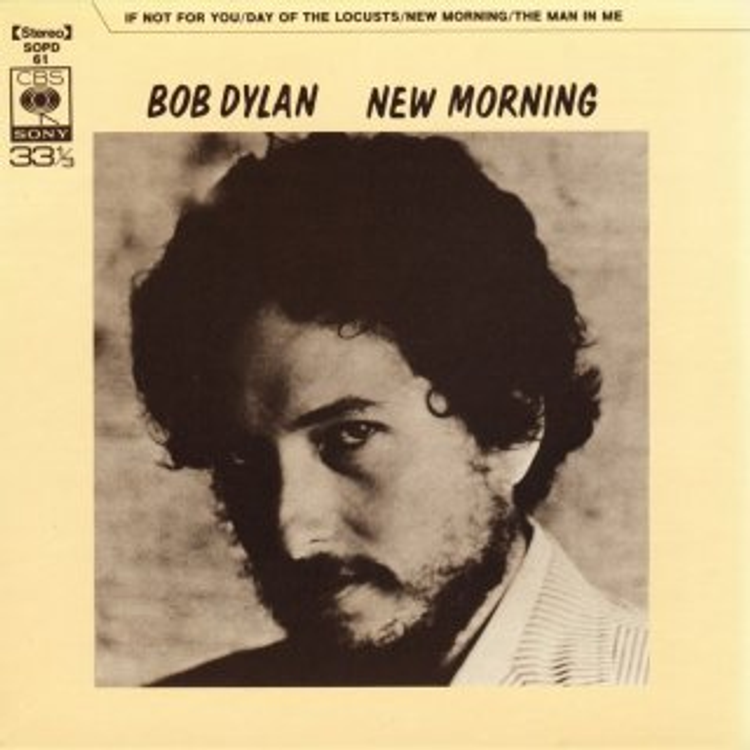In the autumn of 1970, Bob Dylan released an album that critics dismissed as slight, even frivolous. Coming after the raw confessionalism of John Wesley Harding and the country detour of Nashville Skyline, New Morning seemed to many observers like Dylan retreating further into domestic comfort, away from the prophetic voice that had defined the 1960s. Rolling Stone called it “a pleasantly inconsequential record.” Other reviewers shrugged it off as minor Dylan, harmless but forgettable.
More than five decades later, it’s time to reconsider. *New Morning* isn’t Dylan’s retreat from moral seriousness – it’s his most profound statement about where morality actually lives.
The Quieter Revolution
The album’s opening track announces its intentions with disarming simplicity. Rather than electric fury or cryptic prophecy, we get acoustic warmth and images of domestic life. This immediately set critics on edge. Where was the anger? Where was the social commentary? But this question reveals a fundamental misunderstanding of what Dylan was attempting.
After a decade of being cast as the voice of his generation, Dylan had discovered something crucial: the revolution that matters most happens in the daily choices we make, in how we treat the people closest to us, in whether we can find gratitude in ordinary moments. This wasn’t abandoning political consciousness – it was deepening it.
The Architecture of the Mundane
Throughout New Morning, Dylan explores territory that popular music rarely touches with such sincerity: the dynamics within everyday life. When he sings about simple pleasures and small moments, he’s not escaping into sentimentality. He’s asking a radical question: What if the most important work we do isn’t in grand gestures but in showing up, paying attention, and choosing connection over isolation?
The album’s various tracks explore different facets of this domestic morality. There’s the celebration of partnership, the acknowledgment of struggle, the recognition that building a life with intention requires constant renewal. The title itself suggests this: not just morning, but *new* morning – the daily opportunity to begin again, to choose better, to live with greater awareness.
Against the Cult of Authenticity
One reason critics missed the album’s depth is that they were still operating under the assumption that authenticity in popular music required either raw emotional display or political fury. Dylan had given them both in previous years, and they wanted more. But *New Morning* suggests that there’s something more authentic than either rage or confession: the sustained effort to live well.
This was a particularly radical stance in 1970. As the counterculture collapsed into violence, cynicism, and excess, Dylan was proposing something almost revolutionary in its quietness: that perhaps the way forward wasn’t through more extremity but through re-engaging with fundamental questions about how to be human.
The Spiritual Without Dogma
Before his explicit turn to Christianity in the late 1970s, New Morning shows Dylan working through spiritual questions without religious doctrine. The album breathes with a sense of wonder, gratitude, and moral purpose that feels inherently spiritual but never sectarian. It’s seeking without arriving, which may be why it feels so contemporary today.
In our current moment of exhausting certainties – political, social, and cultural – there’s something deeply appealing about an artist willing to find meaning in uncertainty, to celebrate small joys without cynicism, and to suggest that the work of building a meaningful life is ongoing and never complete.
The Long View
History has been kinder to New Morning than its initial reception suggested. Contemporary listeners, particularly those who came of age after Dylan’s 1960s apotheosis, often find the album more immediately accessible and emotionally resonant than his more celebrated works. It speaks to anyone who has discovered that real life is less about dramatic transformations and more about incremental choices.
The album also gains power in the context of Dylan’s full career. It represents a crucial moment when he decided that he didn’t owe anyone a particular version of himself, that he could follow his instincts even when they led away from what was expected. This artistic freedom would serve him well in the decades to come, through religious periods, creative valleys, and eventual renaissance.
Courage in Contentment
What makes New Morning genuinely radical is that it suggests contentment isn’t the enemy of moral consciousness but potentially its highest expression. In a culture that equates intensity with importance and mistake quietness for complacency, Dylan had the courage to suggest otherwise.
The album doesn’t deny struggle or suffering – it’s threaded throughout – but it refuses to make suffering the only lens through which we understand life’s meaning. Instead, it proposes that there’s a profound importance in choosing gratitude, honoring commitments and finding beauty in what’s immediately before us.
This isn’t the message that gets you on magazine covers or inspires protest movements. But it might be the message that actually helps people live better lives. And fifty-plus years later, as we collectively struggle with burnout, polarization, and the exhausting pressure to perform moral righteousness, *New Morning*’s gentle insistence on the importance of ordinary life feels not just relevant but urgent.
Bob Dylan’s greatest masterpiece wasn’t misunderstood because it was too complex. It was misunderstood because it was too simple – and because its simplicity contained a moral vision that popular culture wasn’t ready to recognise. Perhaps we’re finally catching up to what Dylan understood in 1970: that the sunrise each of us needs most isn’t the one that transforms the world, but the one that gives us another day to try to live well.





















